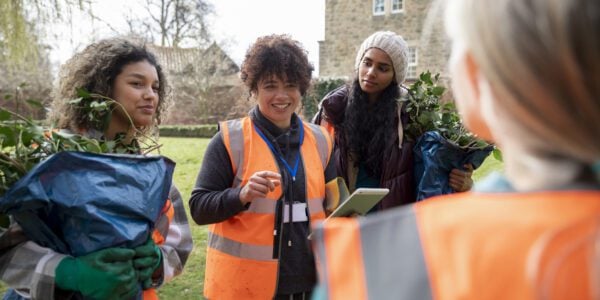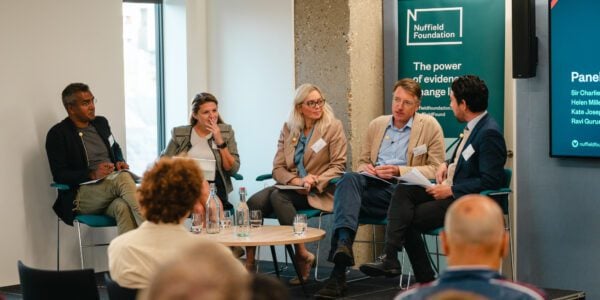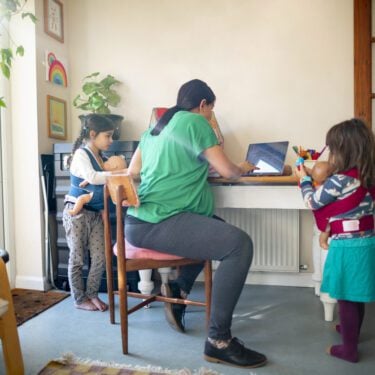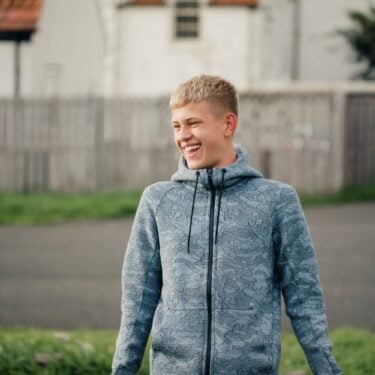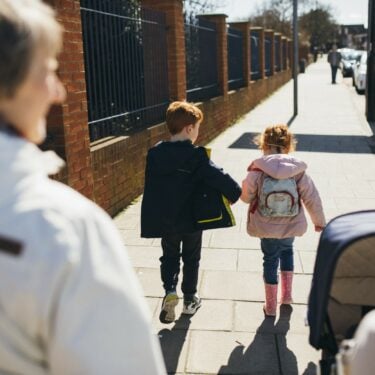Girls and women who have been through the care system should be diverted away from custodial sentences into community alternatives wherever possible. In addition, moves to prevent the criminalisation of girls in care need to be high on the agenda for change.
A new Nuffield Foundation report has been published today written by Dr Claire Fitzpatrick and Dr Katie Hunter, from the Centre for Child and Family Justice Research at Lancaster University, Dr Julie Shaw, of Liverpool John Moores University, and Dr Jo Staines, of the University of Bristol.
The research explores the neglected experiences of imprisoned women from care, as well as those of care-experienced girls and young women in the community with youth justice system contact. As a minority within the justice system, girls and women are particularly likely to have their needs overlooked.
The study reveals how girls in care may experience ‘over-scrutiny’ in some care settings, leading to their unnecessary criminalisation, which contrasts directly to the lack of support they may face in relation to experiences of victimisation, leaving care support and imprisonment.
Highlighting evidence of the ‘immense harm’ that can come from imprisonment, the report argues that prison must cease to be a default option when the lack of support in care and the community essentially helps to reproduce the well-trodden routes between care and custody. There should also be ‘far greater recognition’ of the profound impact of imprisonment across the generations, particularly on care-experienced mothers.
Despite increased recognition of this problem, and ongoing efforts to prevent it, police call-outs for minor incidents in some care homes remains a risk for some children.
As 18-year old study interviewee ‘Ellie’ said: “There’s still this stigma within the care system of you are in care, therefore every minor accident you have… is clearly intentional… let’s get you arrested.”
The study found that girls in care who are in conflict with the law may be stigmatised not just because of their care status but also because of negative judgements relating to their gender or ethnicity.
Interviews were undertaken with 37 care-experienced women from across three prisons in England and 17 care-experienced girls and young women in the community across England who had also had youth justice involvement.
Many participants described backgrounds of abuse, serious violence and trauma, and had multiple experiences of victimisation throughout their lives. Violence and abuse at home was the most common reason reported for entering the care system.
Over a third of care-experienced participants reported their first justice system contact occurred whilst in care. Of these, 11 were in children’s homes at the time of this contact, and over-criminalisation for minor offences in children’s homes was a common theme.
An escalation in offence seriousness was a feature of many women’s lives. For some, offending behaviour worsened after the ‘cliff edge’ of support after leaving care.
The research also includes interviews with 40 professionals who work with care-experienced women and girls, with expertise stemming from across a range of professional spheres. These interviews highlighted a commitment to diverting children from the youth justice system, and a recognition that this needed to involve far more than just avoiding prosecution.
Recommendations
The research team call on local authorities, including Directors of Children’s Services, as well as Chief Constables, to renew their commitment to procedures aimed at preventing unnecessary criminalisation of children in care, by:
• Placing a statutory duty on local authorities to prevent unnecessary criminalisation of children in care.
• Recognising the limits of official care files and moving beyond them.
• Promoting trusted and consistent relationships and challenging stigma.
• Diverting girls and women from custody wherever possible.
• Confronting the intergenerational harms that imprisonment creates.
Lead author Dr Claire Fitzpatrick said: “Too many women in prison today were the girls in care of yesterday, and systemic failings in the wider society perpetuate this problem. We must do more to prevent this, and listening to, and learning from, the stories of criminalised girls and women is a vital starting point.”
Rob Street, Director of Justice at the Nuffield Foundation said: “There is a persistent over-representation of care-experienced girls and women in the youth and criminal justice systems. Encouragingly, this study presents clear recommendations which could improve the lives of these girls and women by breaking the link between care and custody which can impact care leavers throughout their lives.”
Download report
-
Policy briefing: Disrupting the routes between care and custody for girls and women820KB | pdf | 04 May 22
-
Executive summary: Disrupting the routes between care and custody for girls and women1MB | pdf | 04 May 22
-
Full report: Disrupting the routes between care and custody for girls and women2MB | pdf | 04 May 22



